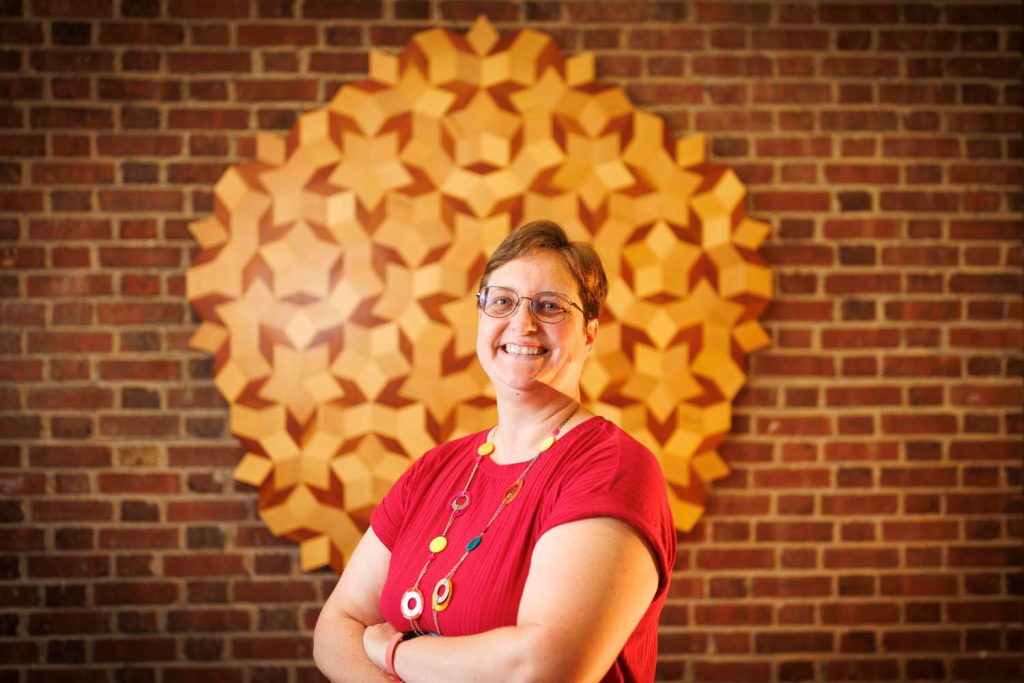
I’ve been pondering community lately: how to form community, how to be in community with others (particularly others whose values don’t align with mine), and how we fit communities into the world of academia that tends to prioritize competition and overwork. In PROSPECT, we’ve used “community” in PLCs (professional learning communities), and have had conversations on and off about how an S-STEM might (and might not) operate as a PLC. In the past year or so, I’ve read Lorgia García Peña’s Community as Rebellion and Athenia Aktipis’ A Field Guide to the Apocalypse, both of which emphasize the importance of community. I’ve also completed the online set of workshops by the Adaway group, Whiteness at Work, which also emphasize community. I’ve definitely grown in my definition of community as well as my commitment to community over tasks.
I was shaped through education to be task-oriented and not relationship-oriented. Given that we are in academia, we of course have tasks we are expected to do, sometimes with inflexible timelines. However, I have been challenging myself to prioritize and create community anyway, and also to stop seeing task and relationship orientation as opposites. Being relational and community-centered is something I’ve really grown in across the past decade. This orientation looks like scheduling time during meetings to check in with each other and engage in relational activities. It means not just knowing someone’s email address but maybe the name of their dog, or about their favorite hobby (hello, fellow PROSPECT hikers!). This orientation also means extending each other grace and flexibility, understanding that life happens, and we all have priorities that are more important than one project.
Seeking to form and be in community with each other and colleagues is a challenge in most of our contexts. Academia has been designed to be transactional: we teach (and do everything else--service, outreach, engagement, research, etc) in exchange for money. Further, we all have limited time, and have to constantly seek to balance personal and professional responsibilities. I don’t expect to change the core transactional nature of our jobs, but we can still seek to be relational with each other, even while being transactional with some of our tasks. I think of how I have changed grading my students’ homework, from giving papers numerical scores and using “-1” or “X” to indicate wrong answers to instead providing students with feedback in the form of comments, and assigning homework grades based on completion. [I do realize this is something I can do more easily with the relatively small classes I tend to teach, although GradeScope and similar tools can provide ways to give comments to students efficiently on a larger scale.]
I really appreciate that we have built PROSPECT to be a community, where we care about each other, seek to know each other as whole humans, and where we have invested the time to build foundational trust. This hasn’t just been happenstance, but is a community created by us intentionally and collectively, where we have made space for our values and getting to know each other. I think about this in contrast to other groups and projects I’ve been part of where tasks came first and people/relationships were a distant second. I recognize that one of the requirements of community members is to be vulnerable. Particularly when we are used to groups whose purpose is to complete tasks, we haven’t always found time to form the kind of foundational trust needed to support vulnerability.
Stepping into the vulnerability required of being in an authentic community is often uncomfortable. Part of my reflection around community has also been around the courage and vulnerability entailed, and how we encourage more people to join us in community. I also want to acknowledge that vulnerability is only healthy when you have mutually respectful relationships. I know we have all encountered toxic power dynamics, and I think different approaches are necessary until we can establish healthier power dynamics. I want to be clear that I’m not just expecting all of us to be vulnerable and in community with every person we encounter. However, as we interact with colleagues or seek to establish or sustain partnerships, I challenge us to consider how we are fostering community (or not), and ask ourselves how we can better support each other as a community.
I close this reflection with a few questions for all of us:
- How can we recognize when we are in community vs just being part of a group of people (who do not form a community)?
- How can we intentionally deepen our communities through humanizing and relational activities?
- How do we iteratively build trust with each other? (and repair the trust when we are humans and mess up?)
By Wendy Smith